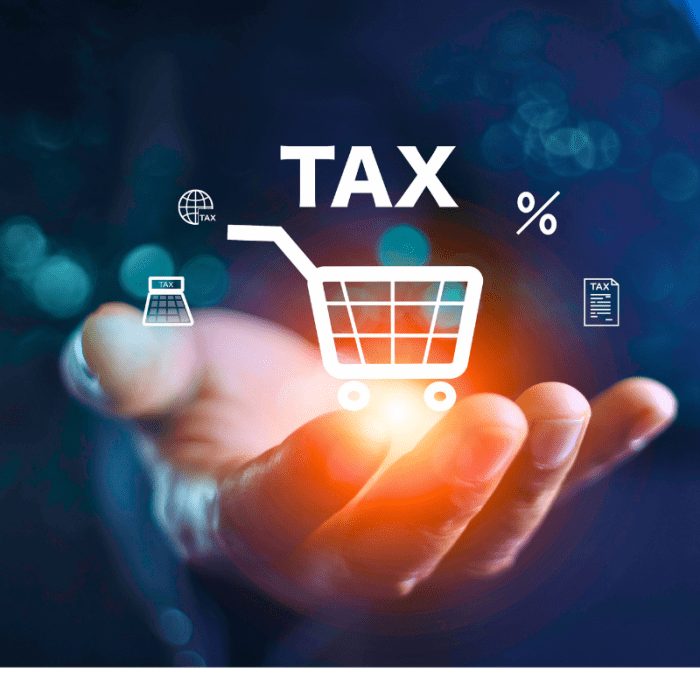Sales tax software for ecommerce is crucial for businesses selling online. It automates complex sales tax calculations, ensuring compliance and minimizing errors. This software streamlines the process, freeing up valuable time for other aspects of your business.
Navigating the intricate world of sales tax regulations can be daunting, especially for businesses operating across multiple jurisdictions. The right software simplifies this process, offering accurate calculations and reporting tailored to your specific needs. From tracking sales in different states to handling various tax rates, effective software can be a game-changer for online retailers.

Source: aissolutions.ca
Navigating the complexities of sales tax for e-commerce businesses can be daunting. This comprehensive guide explores the essential aspects of sales tax software, helping you choose the right solution for your online store and avoid costly mistakes. We’ll cover key features, benefits, and considerations to help you streamline your tax processes and ensure compliance.
Understanding the Importance of Sales Tax for Ecommerce
E-commerce businesses face a unique set of sales tax challenges compared to traditional brick-and-mortar stores. The “physical presence” rules are less clear, and you may be required to collect sales tax in jurisdictions where you don’t have a physical location. Proper sales tax management is crucial for maintaining a strong reputation, avoiding penalties, and ensuring long-term business success.
Jurisdictional Sales Tax Requirements
Sales tax laws vary significantly by state and even by locality within a state. Understanding the specific regulations for each jurisdiction where you operate, or plan to operate, is paramount. This often involves researching local sales tax rates, exemptions, and reporting requirements. Accurate and up-to-date knowledge of these rules is critical for compliance.
Choosing the Right Sales Tax Software for Your Ecommerce Needs
Sales tax software solutions offer a wide range of features to streamline the process. Choosing the right software depends on factors such as your business size, sales volume, and the complexity of your tax obligations.
Key Features to Look For
- Automated Calculation: Software should automatically calculate sales tax based on customer location and product details.
- Multi-Jurisdictional Support: The software should support multiple states and local jurisdictions, ensuring accurate tax collection in every relevant area.
- Tax Rate Management: Software should allow you to easily update and manage tax rates as they change.
- Inventory Management Integration: Integration with your inventory management system is beneficial for accurate tax calculations based on stock levels.
- Reporting and Compliance: Comprehensive reporting capabilities are essential for tracking sales tax collections, generating reports for audits, and ensuring compliance with all relevant regulations.
- API Integration: Integration with your existing e-commerce platform (Shopify, WooCommerce, etc.) for seamless data flow.
- Customer Support: Reliable and responsive customer support is vital for resolving issues and answering questions.
Factors to Consider When Evaluating Software
- Pricing Models: Understand the different pricing tiers and associated features.
- Ease of Use: Choose software that’s intuitive and easy to navigate for your team.
- Scalability: Consider how the software can adapt to your business’s growth and changing needs.
- Security: Data security is paramount when handling sensitive financial information.
Implementing and Managing Your Sales Tax Software
Successfully integrating sales tax software into your e-commerce workflow requires careful planning and execution.
Integration with Your Ecommerce Platform, Sales tax software for ecommerce
Proper integration with your e-commerce platform is essential for seamless data transfer and accurate tax calculations. This typically involves API connections and configuration within your platform’s settings.
Training and Support
Providing adequate training to your team on the software’s functionalities and procedures is crucial for successful implementation. Utilizing the software’s support resources is also recommended.

Source: withum.com
FAQ
- Q: How much does sales tax software cost?
A: Pricing varies significantly depending on features, functionality, and the number of jurisdictions supported. Contact vendors for specific pricing details.
- Q: Can I use free sales tax software?
A: Yes, some basic free options exist, but they often have limitations in terms of features and support. Consider the long-term value and potential growth of your business when evaluating free options.
- Q: How can I ensure accuracy in my sales tax calculations?
A: Regularly review your tax rates, ensure integrations are working correctly, and utilize the reporting tools provided by the software to identify and correct any discrepancies.
- Q: What happens if I make a mistake in my sales tax reporting?
A: Contact your state’s tax department or a tax professional for guidance. Prompt action is crucial to minimize potential penalties.
Conclusion
Implementing robust sales tax software is an essential component of a successful e-commerce strategy. By understanding your needs, evaluating different solutions, and properly integrating the software into your workflow, you can ensure accurate tax calculations, maintain compliance, and focus on growing your business.
Call to Action
Ready to streamline your sales tax processes? Explore the various sales tax software options available today and find the perfect fit for your e-commerce business. Contact us for a personalized consultation.
Disclaimer: This article provides general information and should not be considered professional tax advice. Consult with a qualified tax professional for personalized guidance.
In conclusion, sales tax software for ecommerce is an essential tool for any online business. It allows for accurate tax calculations, simplifies compliance, and saves valuable time. By leveraging this technology, businesses can focus on growth and expansion while maintaining full tax compliance.
Questions and Answers: Sales Tax Software For Ecommerce
What if I sell products in multiple states?
Sales tax software for ecommerce will usually handle multi-state sales tax calculations, automatically adjusting for various rates and reporting requirements. You should research which jurisdictions require sales tax and ensure your software is compliant.
How much does sales tax software for ecommerce cost?
Pricing varies depending on the features and functionality of the software. Some offer tiered pricing plans based on usage or transaction volume. Consider your needs and compare different options before choosing a solution.

Source: serviceobjects.com
Can I integrate this software with my existing accounting system?
Many sales tax software solutions are designed to integrate with popular accounting platforms, ensuring seamless data flow and minimizing manual entry. Check for compatibility with your current accounting software.